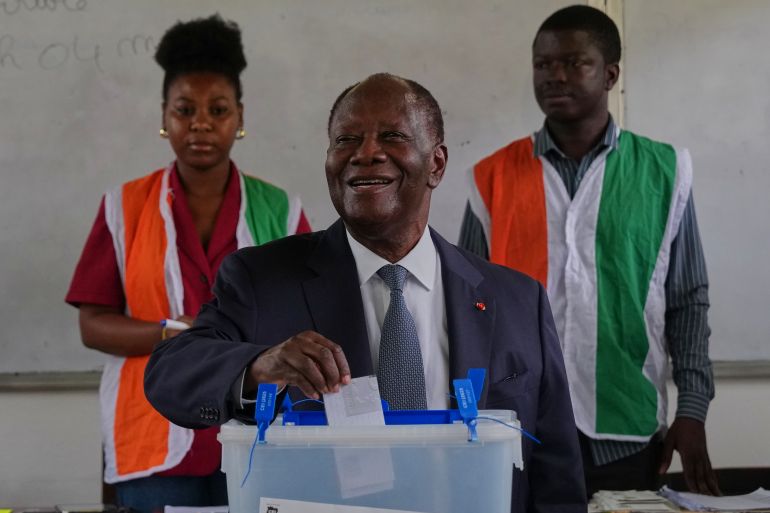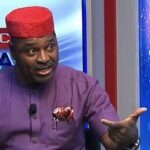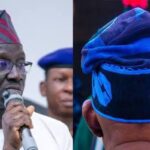
Ivory Coast’s President Alassane Ouattara has won a fourth term in office after securing a massive 89.77 percent of the votes in the just-concluded presidential election.
The country’s electoral commission announced the results on Monday, confirming Ouattara’s continued grip on power.
Held on Saturday, the election saw a low voter turnout despite nearly nine million registered voters.
The poll was largely one-sided, as two of Ouattara’s strongest opponents, former President Laurent Gbagbo and former Credit Suisse CEO Tidjane Thiam, were barred from contesting.
According to the commission, entrepreneur Jean-Louis Billon came second with 3.09 percent of the votes, while turnout stood at 50.10 percent; similar to that of the 2020 polls, when Ouattara won by a wide margin.
Analysts say the exclusion of major opposition figures significantly weakened the contest, leading to what many described as a predictable outcome. The political atmosphere was tense ahead of the polls, with several reports of clashes and low participation in opposition strongholds.
“Their absence, their calls not to participate in the election, and the climate of tension that deteriorated in recent days foretold a significant demobilisation of the electorate,” said William Assanvo, a political researcher.
Despite the controversy, Ouattara’s supporters have celebrated the outcome, describing it as a victory for stability and continuity.
Pro-government media hailed the polls as peaceful, calling it “a calm election,” while opposition groups insist the results do not reflect the people’s will.
The opposition parties have already rejected the outcome, labelling the process as undemocratic and calling for a fresh election.
Ouattara, 83, has been in power since 2011 following the deadly post-election conflict with then-incumbent Laurent Gbagbo, which claimed more than 3,000 lives.
His administration has maintained economic growth in the world’s top cocoa-producing nation, but critics say political freedoms have continued to shrink.
However, normal activities resumed in the capital, Abidjan, on Monday, though many residents expressed mixed feelings about the election’s fairness.
The article was originally published on Politics Nigeria.


